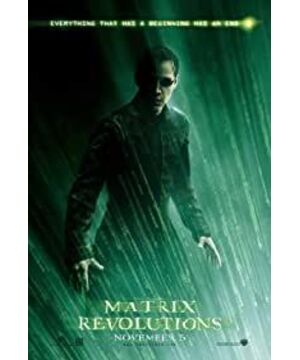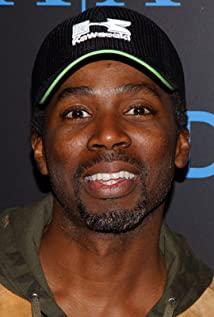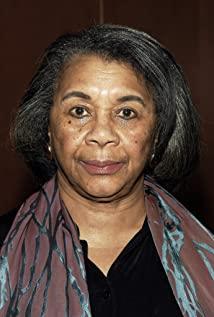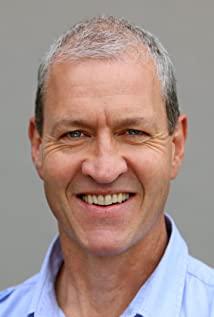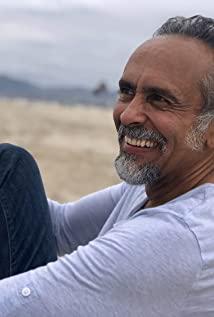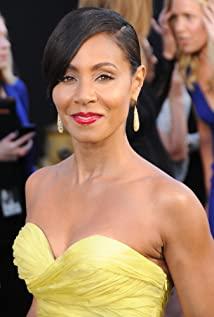When we watch this movie internally, even if the movie presents a completely different world, we can still feel our connection to it. We see Neo constantly encountering and growing in the film, knowing the "world" and himself. This is a portrayal of being a human being. The power that Neo gains through growth is actually the same as ours. It is a power to realize oneself and achieve others at the same time. This is the inner reason why we rejoice or sigh for the protagonist, and "share joys and sorrows" with him.
In the first episode, Neo was liberated from Matrix by Morpheus and others. His original habits, cognition, and value were broken-this process has unavoidable pain. The two pills Morpheus prepared for Neo represent two paths: one takes the pain and embarks on the path of discovering the truth; the other chooses to forget, and is paralyzed in the original illusion. Neo, Morpheus and others have enough courage to choose the former; and the crew member's betrayal is basically because he cannot accept the "truth". However, in fact, we have seen that the residents of Zion learned of the machine’s aggression at the rally, but were inspired by Morpheus’ words and then entered the carnival—everyone who leaves the mother’s body in the movie is proud of himself and mankind, and has an inner sense of happiness. . How much pain you endure also means how much real happiness you have. In other words, there is no such thing as pain or happiness at this moment. People who grow up here can stand firmly and proudly on the ground with their feet even if they encounter an unbearable fate. It is in this sense that Camus explained Sisyphus. Of mythology.
But facing it bravely is only the first step. Sisyphus' mission is to push the boulder, but it is not enough for Neo, Morpheus, or for us. Regarding the future, simply saying that "existence precedes essence" lacks the power to open up. Just go to the pain caused by the first nihility of the antigen, then the confrontation itself is also nihility. The awakened small group of people must think about where they are going, and at the same time they are thinking about the future of the entire mankind. In the first episode, Neo found his first answer after winning the duel: pit the real world against the Matrix, and set the mission of liberating the people in the Matrix as his savior.
The profoundness of the work lies in the opposition between "reality" and Matrix, and the opposition between humans and machines is not the ultimate opposition it intends to present. Although many people have not reached such a level in real life for this black or white, or either or other, it is still understandable by most people. In the second episode, Neo met the designers of Matrix, and their conversation made Neo's cognition become "nothingness" again. The Matrix’s true structure revealed by the designer reflects the superiority of The Matrix compared to other works. Those who leave Matrix are only deliberately exiled by the designer. Because of Matrix’s design flaws, designers set the remainder that cannot be balanced by the system as the savior. According to the program, the rebels will eventually be wiped out by the mechanical army, and the savior will return to the Matrix to restart the host, and select 23 people in the Matrix to become the new "free men". So everything is a procedural cycle, and the so-called free man just lives in a deeper machine rule. This reality is deeper and more cruel than what Neo had previously known. In it, enslavement exists as a kind of air, and even the law of breathing is governed by it. Therefore, there is no savior, and the power of the savior is consistent with the enslavement of mankind. As a mechanical will, the designer will study humans through this cycle to better control humans.
"Like a woman who hurriedly put on make-up to go to her first date, when the world flocked to us who was just born, she had already put on her makeup, put on a mask, and was pre-interpreted. And it is not only conservative to be deceived. Rebels, because they are eager to confront everything and all people, do not realize how tame they are; what they rebel is only interpreted as (pre-interpreted as) worthy of rebellion."
Milan Kundera's words are just talking about this state of being tamed and controlled. In such a situation, all the original beliefs and efforts of a person are completely disillusioned. At this time, he was either defeated, or took more pain to develop true survival. Faced with this torrent of nothingness, we can only grasp what is truly internalized in our lives-for Neo, that is love. The designer gave Neo two paths: either restart the host to continue the existence of humans, or save Trinity "in vain" and humans will perish. Neo's choice must not be accused of disregarding the fate of mankind. Think of it this way: If you choose to restart Matrix, isn't it to choose machines to further enslave humans? Isn't it the further demise of the meaning of human existence? Although I also think that Neo didn’t think about the problem of human as a whole at the time: As the designer said, emotion defeated logic and reason at that moment... But it was wrong to say that Neo "cannot see reality"-Neo used the most The intuitive way controls reality-he desperately saves Trinity. Sensibility, which is understood by designers as the ridiculous and illusory thing triggered by chemical substances, is where people's passions erupt, and it is also something that transcends rationality and logic and truly guides humanity to ascend. Designers who can only control everything with equation calculations will not understand that this action of Neo is the perfect unity of personal destiny and human destiny.
The Prophet commented on the designer and said: "We may not be able to understand our choices, but that guy doesn't even understand what choices are." From this we can see the real opposition presented in the movie-a thing related to destiny. The opposition to reason and logic can be personified as the opposition between the prophet and the designer in the movie.
The Prophet is a great teacher, and every word of her is soaked with wisdom. She guides Neo and others to achieve themselves in a practical way, instead of providing them with all the known conditions and relying on causal logic inference to arrange everyone's future. Just as Morpheus told Neo: "It's the difference between knowing the path and walking the path." The destiny represented by the prophet pushes history forward, and her predictions are more about things that need to be believed-not by thinking to calculate the possibility. Believe for sex, but as the Prophet said: "balls to bones", you must believe with your whole body like you love. There was a sentence hanging in her room: Know yourself. History will not become arbitrary due to destiny, but we need to believe and understand our choices in our survival, and the future is not mysterious. At the final moment when humankind will be destroyed, and Matrix is about to collapse, he understands his fate, so he is no longer trapped in the confusion and loss brought to him by the designer. Although such an understanding will not change the suffering of reality, the key is that he understands how to place this pain in his life, thus winning freedom; he must seize the fate to give him only the little things left, and use the greatest Try to experience his way. This way of unfolding into the future is subtle and difficult to describe, so when Neo makes a decision, he constantly uses "I have to" to express it. After shouldering our own destiny, our plan for the future is such a "not so" thing. It is not logically necessary. Logic also has no real future, and everything it deduces is already included in the meaning of advancement. The inevitability of destiny requires us to believe and realize it wholeheartedly. Perhaps only after experiencing it can we have a complete understanding of destiny. After Neo achieved Matrix Revolution, the designer said to the prophet: "You played a very dangerous game." The prophet replied "Change always is." This once again shows that facing the destiny requires great courage, which will bring unexpected results. The pain and even destruction, but the true happiness and beauty—such as the little girl (program) that heralds the future of Matrix, such as the human being liberated from slavery—is hidden in it.
Neo's growth is a process from a person who lives in a mediocre stream to an independent person who understands his own destiny. However, this is not limited as an awareness stage. Our cognition in growth will not be rigid, it will change with experience-perhaps growth is sometimes only in a "swift", but the understanding that we have been immersed in life before will be aroused and become our own growth history. This process also reminds us to face ourselves honestly before suffering, and not to leave the problem to others or avoid it. Life is certainly not like the epic in the movie, but people who are growing up are by no means mediocre.
The rational rules that designers can represent have already occupied a dominant position in our lives. . Such rational principles have entered our lives and become our way of life-even if not necessarily expressed actively. Although I think these principles will not develop into the rule of "The Matrix" in the real world, the film also touches the profound reality in its own way. The image metaphor of some programs in Matrix is far-reaching. For example, the Prophet and the "family of three" that Neo met at the train station, they present a program with a strong "human touch". Needless to say, the wisdom of the prophet, the father explained the "love" to Neo with a sense of responsibility "only available" between people. Maybe the movie tries to show us the hope of Matrix in the future through the prophet, the little girl, etc.—just like the Caixia created by the little girl. Does the development of rationality eventually produce a denial of oneself, which brings a "human touch"? As an artistic creation, "The Matrix" is not only touching, but also a profound and subtle thought experiment. The wonderful combination of the two gives it classic artistic charm and vitality.
View more about The Matrix Revolutions reviews


